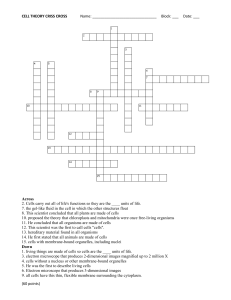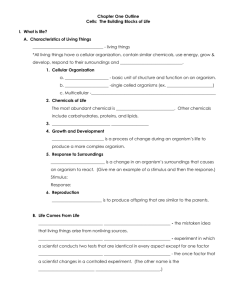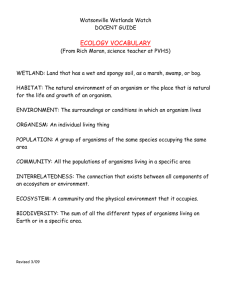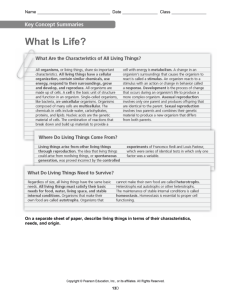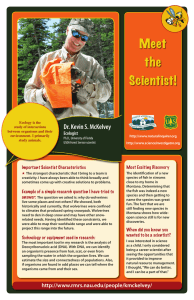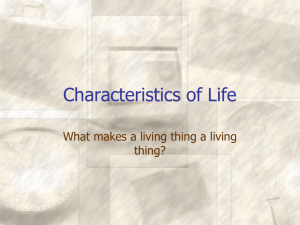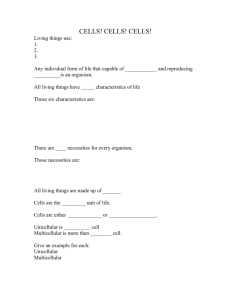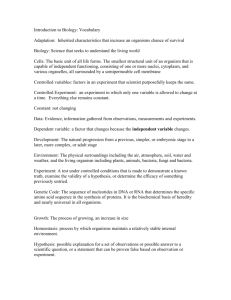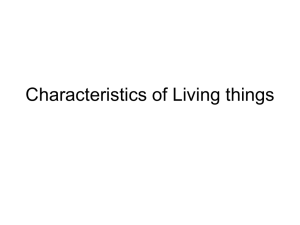Cell Theory Tutorial: STAAR Science TEK 7.12F
advertisement
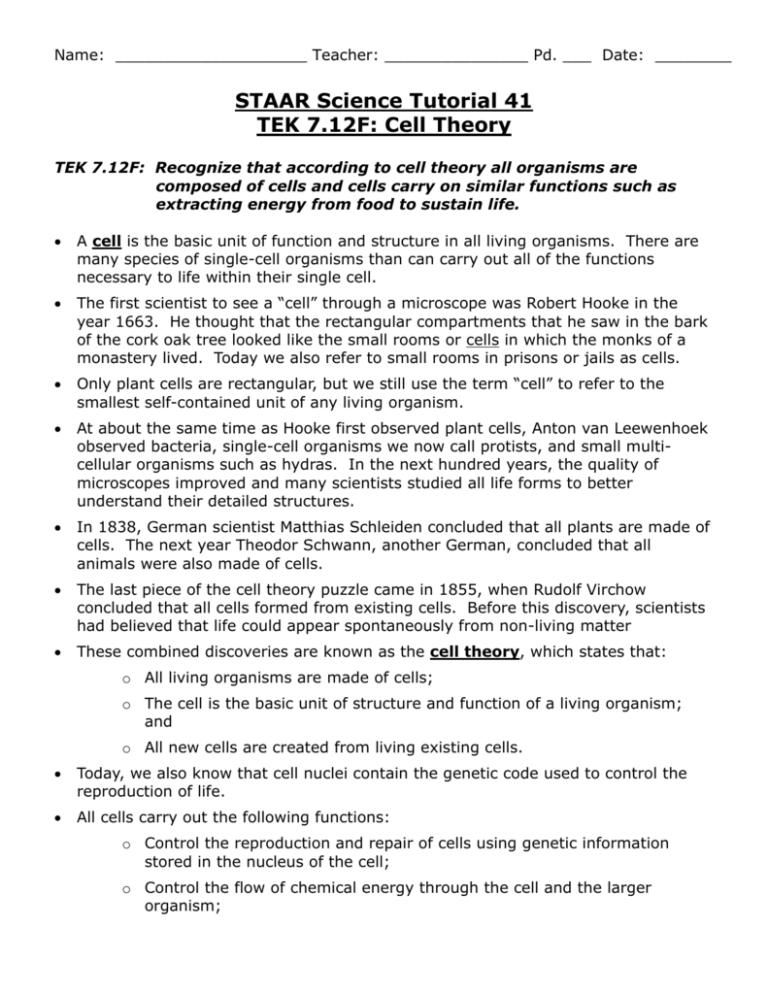
Name: ____________________ Teacher: _______________ Pd. ___ Date: ________ STAAR Science Tutorial 41 TEK 7.12F: Cell Theory TEK 7.12F: Recognize that according to cell theory all organisms are composed of cells and cells carry on similar functions such as extracting energy from food to sustain life. A cell is the basic unit of function and structure in all living organisms. There are many species of single-cell organisms than can carry out all of the functions necessary to life within their single cell. The first scientist to see a “cell” through a microscope was Robert Hooke in the year 1663. He thought that the rectangular compartments that he saw in the bark of the cork oak tree looked like the small rooms or cells in which the monks of a monastery lived. Today we also refer to small rooms in prisons or jails as cells. Only plant cells are rectangular, but we still use the term “cell” to refer to the smallest self-contained unit of any living organism. At about the same time as Hooke first observed plant cells, Anton van Leewenhoek observed bacteria, single-cell organisms we now call protists, and small multicellular organisms such as hydras. In the next hundred years, the quality of microscopes improved and many scientists studied all life forms to better understand their detailed structures. In 1838, German scientist Matthias Schleiden concluded that all plants are made of cells. The next year Theodor Schwann, another German, concluded that all animals were also made of cells. The last piece of the cell theory puzzle came in 1855, when Rudolf Virchow concluded that all cells formed from existing cells. Before this discovery, scientists had believed that life could appear spontaneously from non-living matter These combined discoveries are known as the cell theory, which states that: o All living organisms are made of cells; o The cell is the basic unit of structure and function of a living organism; and o All new cells are created from living existing cells. Today, we also know that cell nuclei contain the genetic code used to control the reproduction of life. All cells carry out the following functions: o Control the reproduction and repair of cells using genetic information stored in the nucleus of the cell; o Control the flow of chemical energy through the cell and the larger organism; o Distribute and store materials used to create the complex molecules from which cells and the larger organism is built; o Assemble complex molecules to build new cell structures; o Process, recycle and dispose of waste; Practice Questions 1. A _____________________is the basic unit of function and structure in all living organisms. 2. The first scientist to view a plant cell through a microscope was _____________ _____________________ in the year ____________. 3. ____________________________________________________ was the first scientist to view an animal cell through the microscope. 4. The “cell theory” states that: (1) _____________________________________ _____________________________________; (2) ______________________ _______________________________________________________________; and (3) _________________________________________________________. 5. The common functions of all cells include: (1) ___________________________________________________________; (2) ___________________________________________________________; (3) ___________________________________________________________; (4) ___________________________________________________________; (5) ___________________________________________________________.
